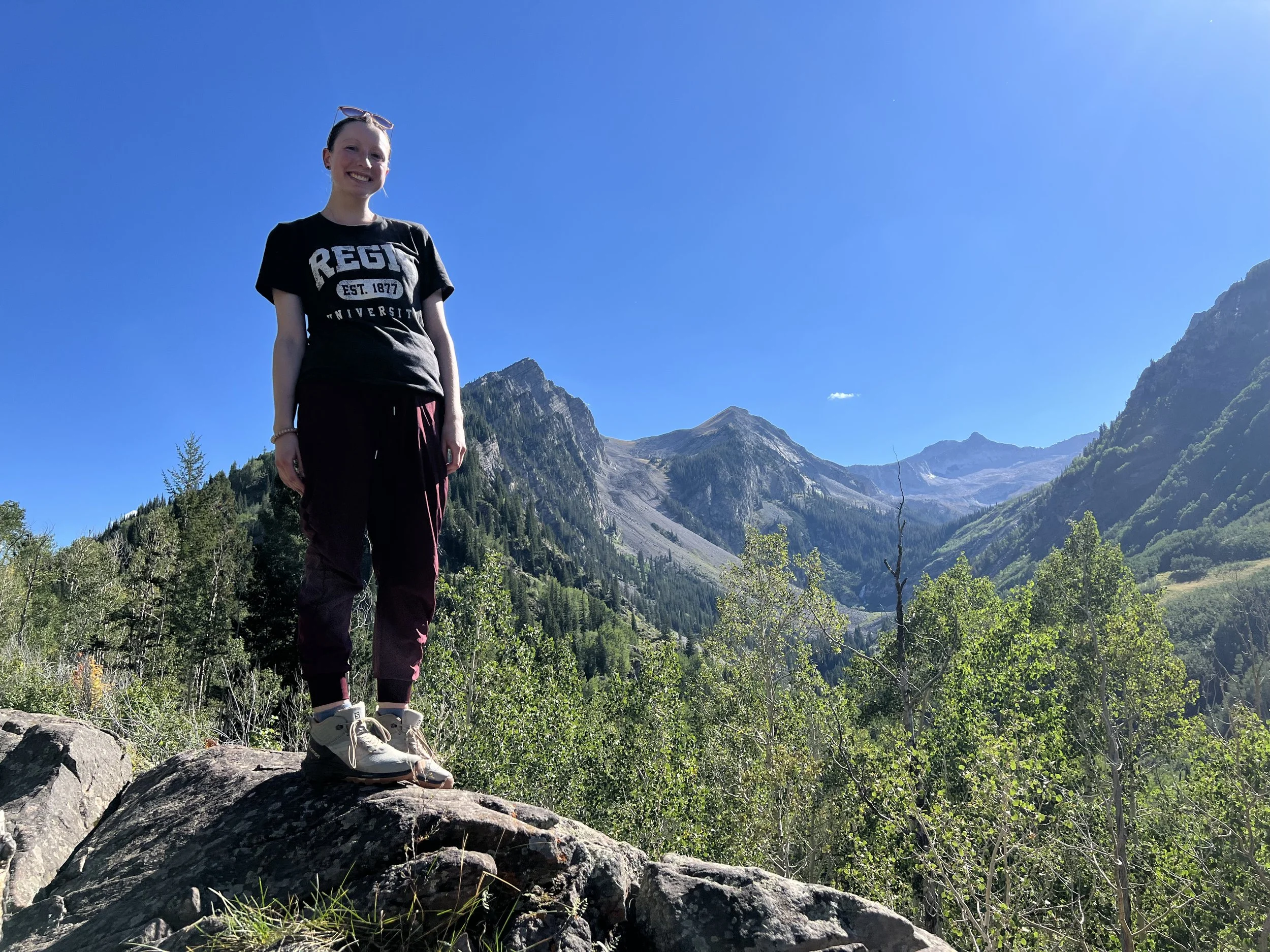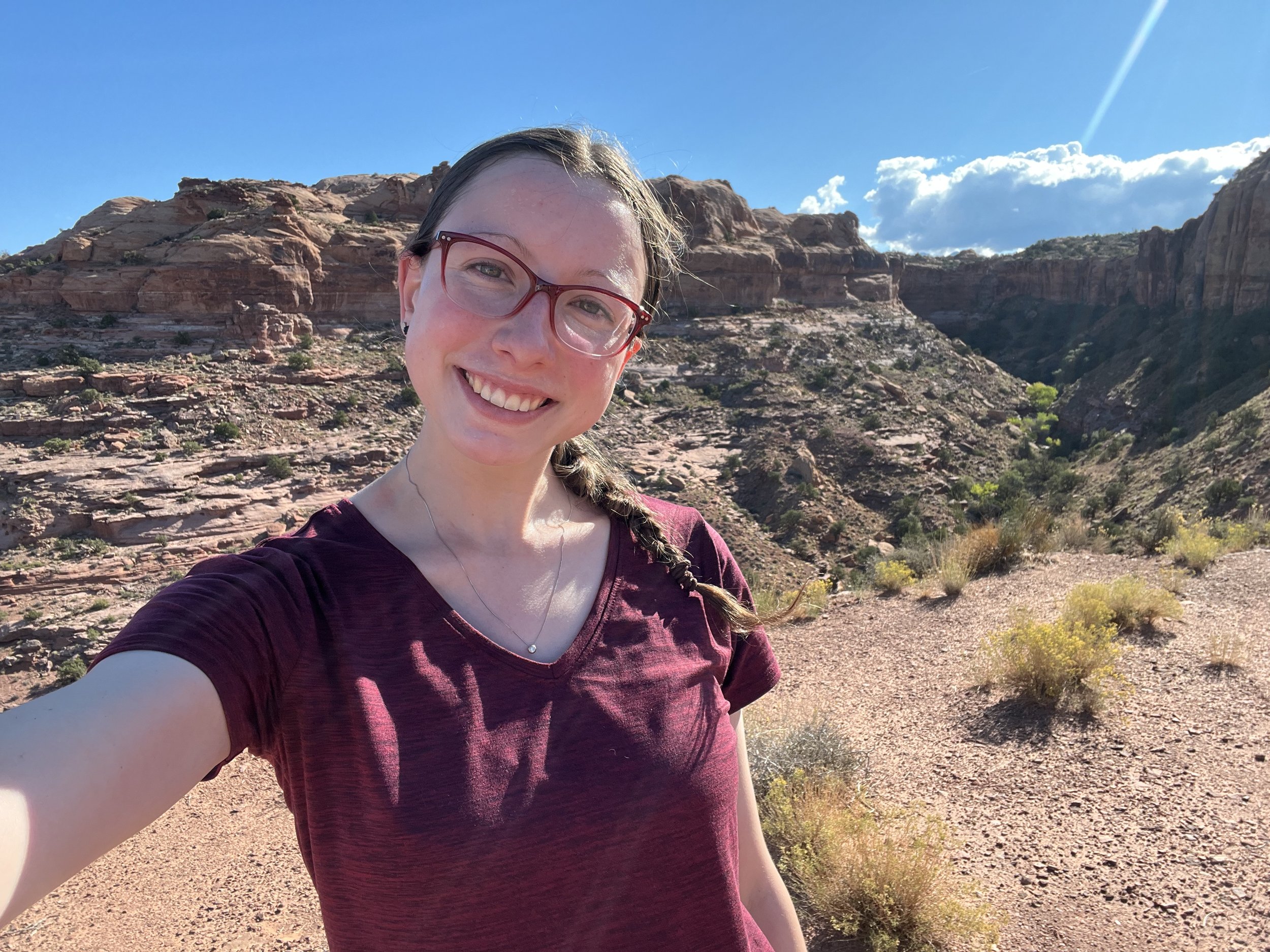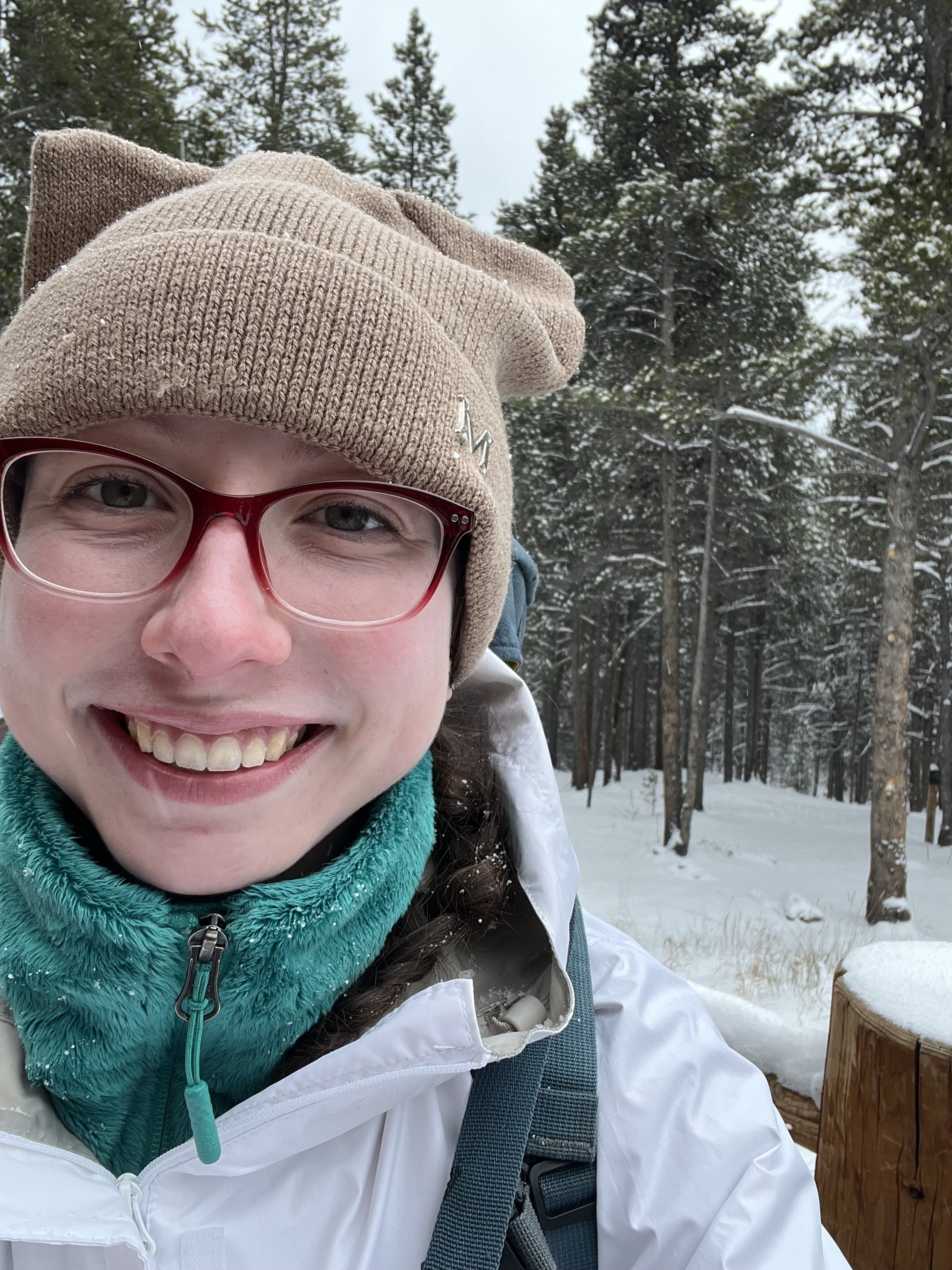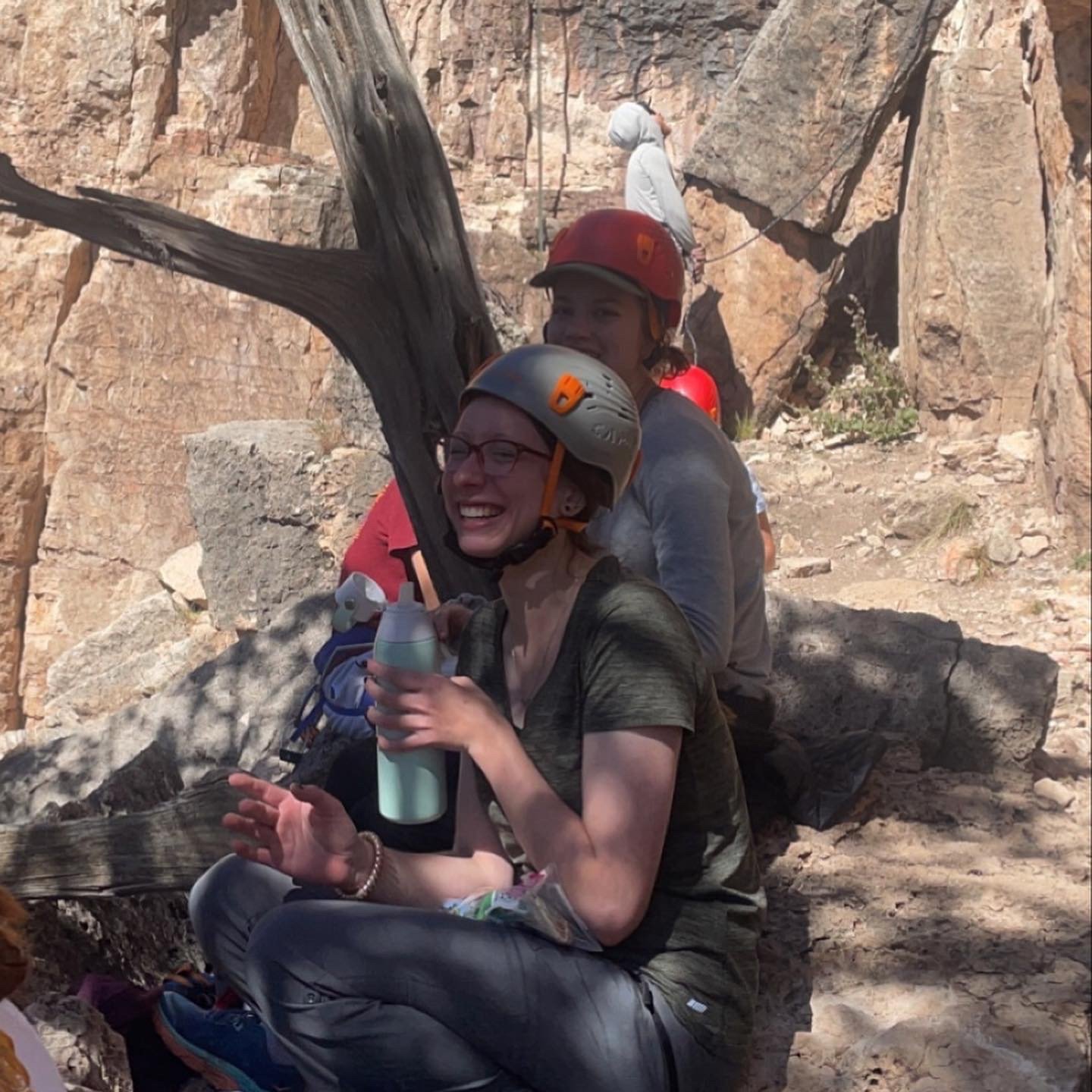By Austin Price, Staff Writer
Since joining Regis University this year, I have found one program in particular that has impacted me and improved my mental health immensely. This program is the Outdoor Adventure Program (OAP). The Outdoor Adventure Program is exactly what it sounds like. It is a program designed to take Regis students to beautiful destinations for exploration and discovery in a safe and encouraging environment.
I have been on many trips with OAP this year, including adventures to Lake Dillon, CO; Genesee, CO; Snowmass, CO; Moab, UT; Shelf Road, CO; and I plan to embark on many more. With OAP, I have gone hiking, rock climbing, canyoneering, backpacking, camping, swimming, rafting, stargazing, and so much more. OAP has provided me with so many opportunities and has given me a positive outlet for my mental health.
As someone clinically diagnosed with depression, anxiety, and OCD (obsessive compulsive disorder), I have spent most of my life in various forms of treatment including medication and therapy. While I have found a balance with those treatments, I can safely say that Mother Nature has been the superior doctor for me. Whenever I am on an expedition with OAP or exploring Colorado on my own, the cacophony of voices inside my head and the endless string of worries seems to be silenced. I have no anxiety, no sadness, no compulsions, and no fear when I am experiencing nature in the most vulnerable way.
After finding such immense success with my mental health and the correlation it holds with the great outdoors, I was curious to know more about why a few days outside had such a drastic impact on my life and on me as an individual. So, I did what any great outdoors enthusiast / mental health advocate would do, I did some research.
There are countless studies and experiments done regarding Mother Nature and her impact on human behavior. The American Psychology Association reports that “Spending time in nature is linked to both cognitive benefits and improvements in mood, mental health and emotional well-being.” Studies also show that even if one cannot actively spend time in nature, “feeling connected to nature can produce similar benefits to well-being, regardless of how much time one spends outdoors.” What you are seeing, hearing, experiencing at any moment changes not only your mood, but how your nervous, endocrine, and immune systems are working.
The American Psychology Association also conducted studies on the various types of outdoor exploration in terms of terrain and environment. They found that “Both green spaces and blue spaces (aquatic environments) produce well-being benefits. More remote and biodiverse spaces may be particularly helpful, though even urban parks and trees can lead to positive outcomes.”
Studies show that nature can help humans cope with pain, whether it be mental pain or physical pain. Because we are genetically programmed to find trees, plants, water, and other nature elements engrossing, we are absorbed by nature scenes and distracted from our pain and discomfort. Since our ancestors evolved in wild settings and relied on the environment for survival, we have an innate drive to connect with nature.
Time spent in nature has been discovered to be a way to increase calmness in oneself and increases the amount of endorphin levels and dopamine production which make up the feeling of happiness. Nature brings a sense of calmness and stillness. In a world buzzing with fast cars, smartphones, and social media, the outdoors remains raw and untethered. In addition to a sense of tranquility, nature also encourages a more giving spirit amongst humans.
Experts believe that this phenomenon of selflessness and sacrifice in nature is due to awe, which refers to the deep sensation of connection with the world around us. It can occur during moments of inspiration, like when you are standing on top of a beautiful mountain or witnessing a stunning sunrise. Awe evokes a deep sense of gratitude. When outdoors, it can inspire a deep and profound perspective of our planet embracing us with a feeling of happiness. When we feel happy, we want to share our feelings of joy with others. As a result, we tend to be more kind, patient, and giving.
Nature can restore capacity for concentration and attention. We must be more alert when we are in nature. We are more aware of our surroundings and more attuned to how we feel. Compared to our cushioned offices and homes, there are far more variables in the great outdoors. However, this wakefulness is not a bad thing. If we are running on autopilot throughout the day, it can be the change our minds and bodies crave.
Time in nature or time spent viewing nature scenes increases our ability to pay attention. Because humans find nature inherently interesting, we can naturally focus on what we are experiencing out in nature. This also provides a respite for our overactive minds, refreshing us for new tasks.
Nature has also been shown to reduce irritability and feelings of isolation as well as reduce symptoms of anxiety and depression. According to a series of field studies conducted at the University of Minnesota, when participants viewed nature scenes, the parts of the brain associated with empathy and love were activated, but when they viewed urban scenes, the parts of the brain associated with fear and anxiety were activated.
McMaster University reports that “a minimum of two hours a week spent in nature, either at one time or over several visits, is needed to significantly increase your health and well-being.” One of the most essential things to remember when utilizing nature as mental and physical therapy is to ensure the place you choose to go feels safe. Time in nature is only a stress antidote if you can properly relax and embrace the experience.
Because of the vast research found to support and demonstrate the benefits of nature on the human mind, many businesses and organizations are prioritizing exposure to nature daily. Adding simple and cost-effective procedures to provide natural connectivity such as adding houseplants as décor, opening windows to hear birds chirping or leaves rustling, and even hanging photographs of nature inside have been shown to improve work efficiency and advance workplace collaboration between employees. Exposure to nature in person or via video has led to improvements in attention, positive emotions, and the ability to reflect on a life problem.
Nature positively influences physical health in addition to mental health. Physical care from Mother Nature can begin at the very earliest stages of human life. Richard Louv, journalist and world-renowned author of “Last Child in the Woods”, has conducted research on pregnant women and how both their health and the that of their unborn child can benefit from time spent in nature. Louv writes, “Even before birth, nature exposure for mothers can promote better fetal growth and healthier birthrates, especially for mothers of lower education and socio-economic levels. Time spent outdoors in bright sunlight can reduce nearsightedness and increase vitamin D levels and access to parks and greenspace can foster increased physical activity, reduced risk of obesity and the likelihood that girls will remain active into adolescence. Learning in nature can support improved relationship skills, as well as reduced stress, anger, and aggression.”
As the human being ages from infant to adolescent, the need for contact with nature increases. The University of California, Los Angeles reports the health benefits of time spent outdoors for youth, which has a positive impact on mental health. Long-term exposure to green space can moderate symptoms of attention disorders, park use substantially reduces stress and can increase resiliency, and park programs are cost-effective investments.
As more years pass and adolescence turns to adulthood, the need for nature is still prominent in each human’s life. Time spent in nature has proven to make us healthier and stronger by boosting our immune system, lowering blood pressure, accelerated recovery from surgery or illness, increased energy level, reduced risk of cancer, reduced cortisol (a stress hormone), improves sleep, stabilizes vitamin D production, produces beta-endorphins, and regulates circadian rhythms.
While time spent in nature provides our bodies with many things, it also prevents damaging diseases. Evidence shows that living in greener urban areas is associated with lower probabilities of cardiovascular disease, obesity, diabetes, asthma hospitalization, mental distress, and mortality.
With benefits involving both mental health and physical health, it is hard to argue that humans do not need nature. Oftentimes in the current day and age, we get swept up in our technological worlds of work and school. We get trapped by an endless loop of TikTok videos and Instagram DMs. We spend more time texting our friends than we do talking to them. However, with recent evidence and firsthand experiences to back me up, I argue that it is imperative to spend more time outside, not glued to a screen, and instead letting that primal instinct that every human being has takeover.
I am not saying you need to go backpacking for a month to connect with nature. I understand we have busy lives and because of that, we often put our self-care at the bottom of our priority lists. So, start small. Switch your phone’s lock screen to a picture of nature. Go for a walk around the block when you need a break from work. Open your blinds and windows when working around the house. Take your lunch break outside. Meet up with an old friend to walk around a park. These small steps can drastically improve your mental and physical wellbeing and these behaviors often influence others to do the same.
National parks, open spaces, rivers, lakes, trails, and boulders are all easily accessible, especially in Colorado and these activities are free. Take advantage of the beauty surrounding us and in doing so, let yourself appreciate you and your accomplishments. Let yourself get lost in nature and remind your internal human instinct of its roots. Humans were created to live on this planet. Now let us go enjoy it.




